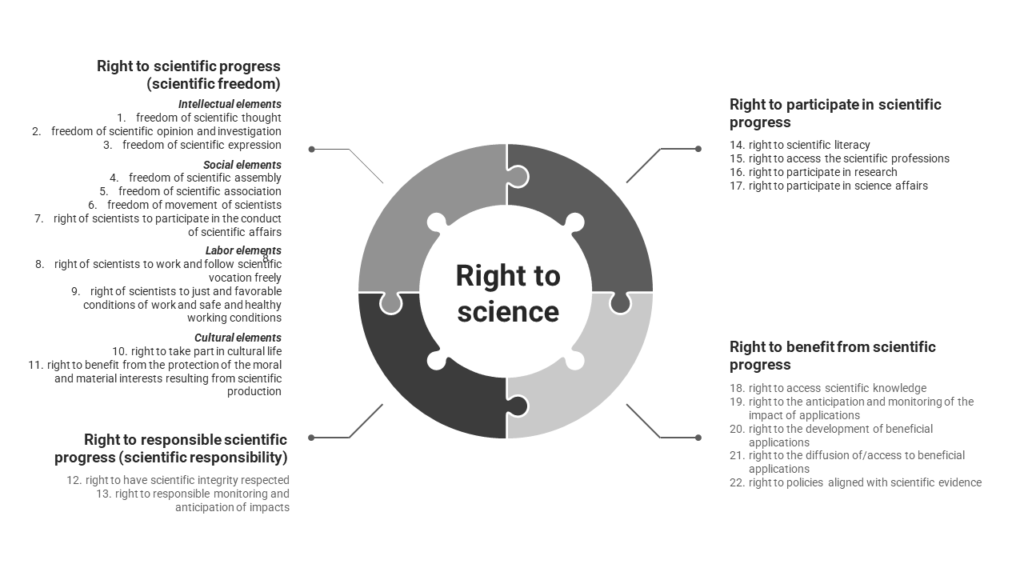The Right to Science is one of the earliest human rights to be internationally recognized, having been codified as early as 1948 in the foundational documents of the international human rights regimes: the American Declaration of Human Rights, and the Universal Declaration of Human Rights (Art. 27.1).
Every person has the right to take part in the cultural life of the community, to enjoy the arts, and to participate in the benefits that result from intellectual progress, especially scientific discoveries
American Declaration, Art. XIII
Everyone has the right freely to participate in the cultural life of the community, to enjoy the arts and to share in scientific advancement and its benefits
Universal Declaration, Art. 27.1
Yet, it is still one of the least known, understood, discussed, and observed of all human rights. One of the goals of SfD is to increase awareness of this key right among the public in general, and scientists in particular.
Human rights norms, in their purest form, are abstract and terse statements that leave much room for rationalization, such as “everyone has the right to a fair trial”, “everyone has the right of adequate conditions of living” or “everyone has the right to health.” However, upon taking a closer look, one invariably discovers that each right contains in itself several more discrete and precise rights. In the case of the RtS, there are at least twenty-two more specific rights, freedoms, and entitlements that one could list under that general heading, which, for the sake of clarity, can be grouped in four interrelated but distinct clusters.

Right to Scientific Progress (Scientific Freedom)
Intellectual Elements
i. Freedom of scientific thought
ii. Freedom of scientific opinion and investigation
iii. Freedom of scientific expression
Social Elements
iv. Freedom of scientific assembly
v. Freedom of scientific association
vi. Freedom of movement of scientists
vii. Right of scientists to take part in the conduct of scientific affairs (passive and active participation)
Labor Elements
viii. Right of scientists to work and follow scientific vocation freely
ix. Right of scientists to just and favorable conditions of work and safe and healthy working conditions
Cultural Elements
x. Right to take part in cultural life
xi. right to benefit from the protection of the moral and material interests resulting from scientific production
Right to Responsible Scientific Progress (Scientific Responsibility)
xii. Right to have scientific integrity respected
xiii. Right to responsible monitoring and anticipation of impacts
Right to Participate in Scientific Progress
xiv. Right to scientific literacy
xv. Right to access the scientific professions
xvi. Right to participate in research
xvii. Right to participate in science affairs
Right to Benefit from Scientific Progress
xviii. Right to access scientific knowledge
xix. Right to access existing applications of scientific progress
xx. Right to the development of beneficial applications of scientific progress
xxi. Right to the diffusion of, and access to, beneficial applications of scientific progress
xxii. Right to policies aligned with scientific evidence
Each of these rights is explained in detail, including normative basis, content, corresponding State obligations and indicators in Romano C./Boggio, A., The Human Right to Science: History, Development and Normative Content, Oxford University Press, 900 pp. circa, 2024.


